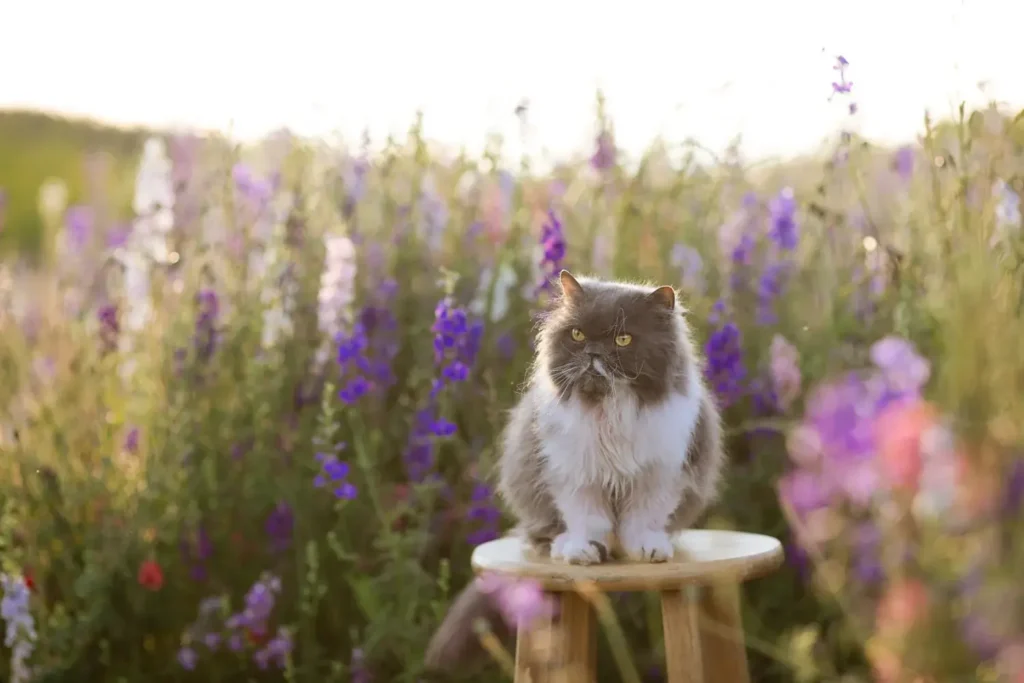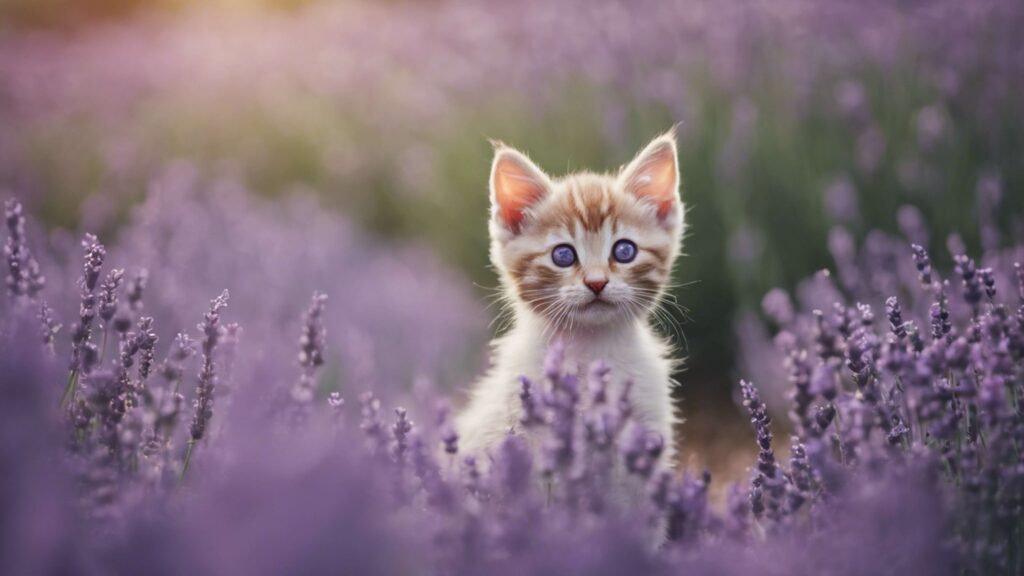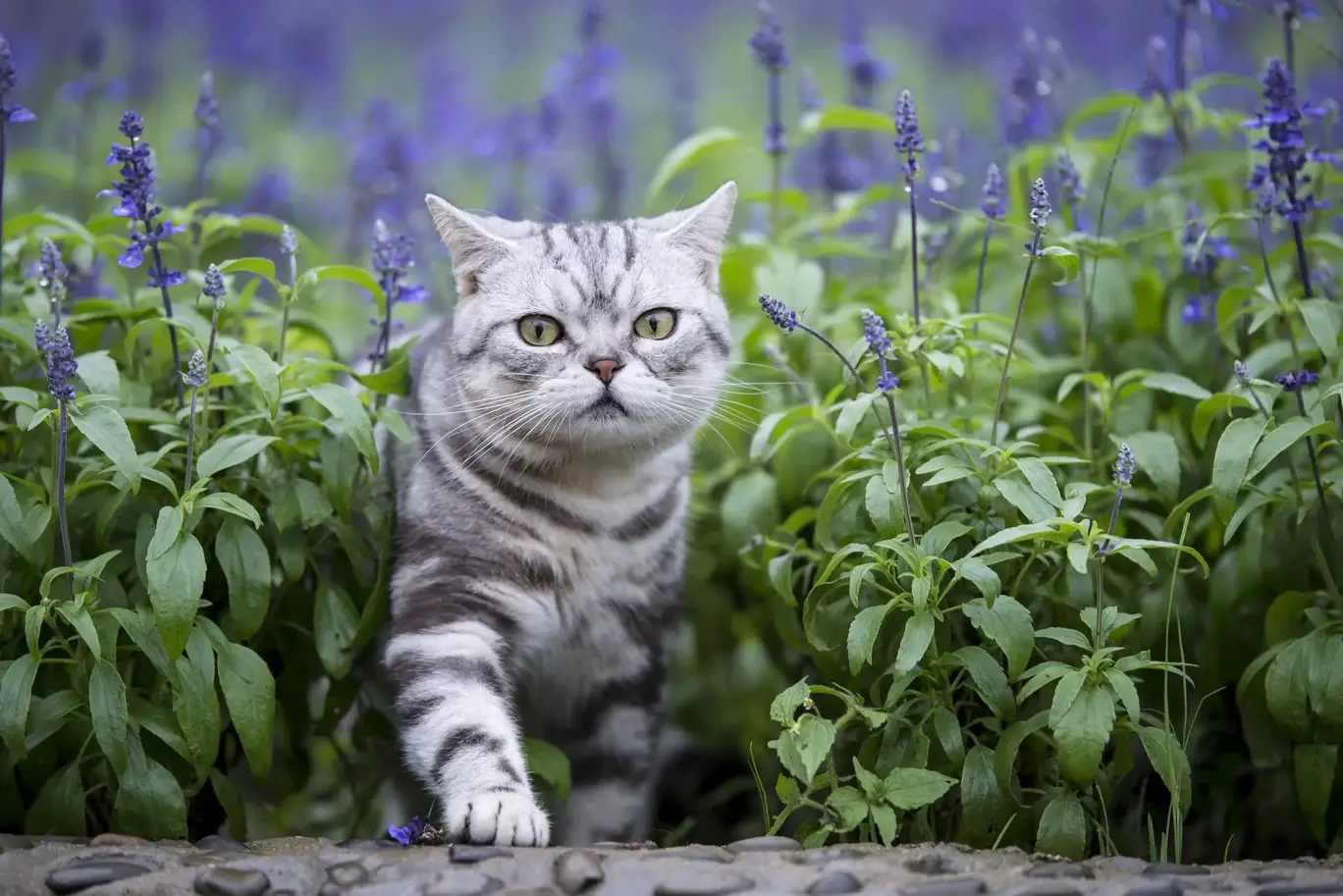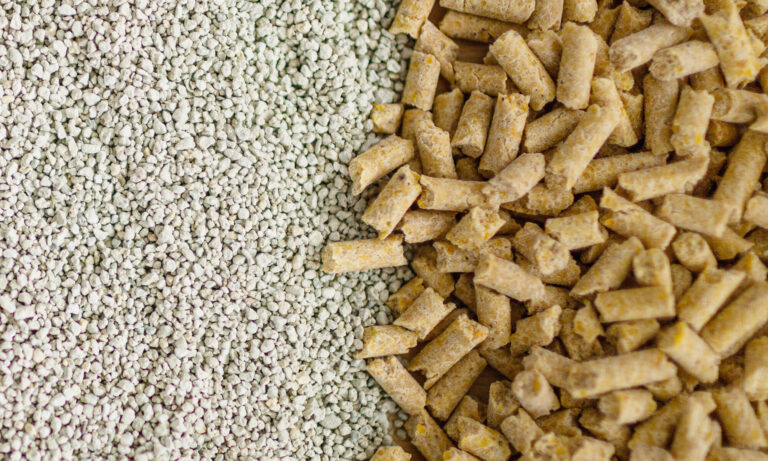Lavender is a beloved herb known for its calming scent and myriad of uses in human health and wellness. However, its application extends beyond human care, as many pet owners wonder if lavender can benefit their feline friends. While lavender is widely regarded for its calming properties, its use with cats requires careful consideration. This article explores the potential benefits and risks of using lavender with cats, how to safely incorporate it into their care routine, and alternative ways to help calm and soothe your feline companion.
Lavender, with its well-known calming properties, can potentially benefit cats if used correctly and cautiously. However, the risks associated with essential oils, including lavender, mean that pet owners must be extremely careful in how they introduce this herb into their cats’ environment. Dried lavender, pet-safe lavender products, and proper veterinary guidance are essential to ensuring your cat’s safety and well-being.
While lavender can help reduce stress and promote relaxation in cats, there are also other natural remedies and methods that can be just as effective. By understanding the potential risks and benefits, and by prioritizing your cat’s health, you can create a safe and soothing environment for your feline friend. Always consult with your veterinarian before introducing any new herb, essential oil, or product into your cat’s care routine, and observe your cat closely for any signs of adverse reactions. With the right approach, you can help your cat live a calm, happy, and healthy life.

Understanding Lavender and Its Properties
Lavender (Lavandula) is a flowering plant from the mint family, Lamiaceae, and is native to the Mediterranean region. The plant’s essential oil is extracted from the flowers and is widely used in aromatherapy, cosmetics, and as a natural remedy for stress, anxiety, and sleep issues. The primary active compounds in lavender are linalool and linalyl acetate, both of which are known for their calming and relaxing effects.
Can Lavender Be Beneficial for Cats?
Lavender’s soothing properties are well-documented in human care, but its use with cats is more complex. While lavender can offer some benefits, it must be used with caution, as cats are more sensitive to essential oils than humans and dogs.
1. Calming and Reducing Anxiety:
One of the primary benefits of lavender is its ability to reduce stress and anxiety. In cats, anxiety can manifest in various ways, including excessive grooming, spraying, hiding, or aggression. Lavender, when used correctly, may help create a calming environment for anxious cats. For instance, placing a small amount of dried lavender in a cat’s bed or using a lavender-scented spray (made specifically for pets) can help soothe an anxious cat.
2. Aiding Sleep:
Lavender’s calming properties also extend to promoting better sleep. If your cat struggles with restlessness at night, a light lavender scent in their sleeping area might help them relax and drift off to sleep more easily. Again, it’s crucial to ensure that any lavender product used is safe for cats, as essential oils can be harmful if applied directly or ingested.
3. Repelling Insects:
Lavender is also known for its insect-repelling qualities. Fleas, ticks, and other pests often avoid the scent of lavender, making it a potential natural alternative to chemical repellents. Some pet owners use lavender-infused products, such as collars or sprays, to help keep pests at bay. However, these should only be used if they are specifically formulated for cats, as inappropriate use can lead to adverse effects.
Risks and Precautions of Using Lavender with Cats
While lavender can offer some benefits, it’s essential to recognize that not all uses of lavender are safe for cats. Cats have a unique metabolism that makes them more susceptible to the toxic effects of certain compounds, including those found in essential oils like lavender.
1. Toxicity Concerns:
The primary concern with lavender is its essential oil, which contains linalool and linalyl acetate. While these compounds are soothing for humans, they can be toxic to cats if ingested or absorbed through the skin. Cats lack certain liver enzymes necessary to metabolize these compounds, leading to a risk of toxicity. Symptoms of lavender toxicity in cats include vomiting, diarrhea, dizziness, and in severe cases, respiratory distress or liver damage.
2. Essential Oils and Cats:
Essential oils are highly concentrated and should be used with extreme caution around cats. Lavender essential oil, in particular, should never be applied directly to a cat’s skin, fur, or food. Even diffusing lavender oil in the air can pose risks, especially in small or poorly ventilated spaces. If you choose to use lavender oil, ensure it is heavily diluted and used in a well-ventilated area where your cat can easily leave if the scent becomes too strong.
3. Alternatives to Essential Oils:
If you want to incorporate lavender into your cat’s care routine, consider using dried lavender flowers or pet-safe products that contain lavender in a highly diluted form. Products specifically designed for cats often undergo rigorous testing to ensure they are safe and effective. Always consult your veterinarian before introducing any new product or remedy to your cat’s environment.

Safe Ways to Use Lavender with Cats
To safely use lavender around cats, it’s crucial to follow best practices and prioritize their well-being. Here are some safe ways to incorporate lavender into your cat’s life:
1. Dried Lavender in Bedding:
One of the safest ways to use lavender for your cat is to place a small sachet of dried lavender flowers in their bed or favorite resting spot. The scent is subtle and can help create a calming environment without the risks associated with essential oils. Ensure that the sachet is securely sealed, so your cat cannot ingest the flowers.
2. Lavender-Infused Pet Products:
Some pet products are formulated with lavender for its calming properties. These might include lavender-scented collars, sprays, or shampoos that are specifically designed to be safe for cats. When using these products, always follow the manufacturer’s instructions and monitor your cat for any signs of irritation or discomfort.
3. Lavender in the Home Environment:
If you use lavender in your home for your own relaxation, ensure that it is in a form that is safe for your cat. For example, you might use a lavender-infused pillow or a diluted lavender spray on your linens. Keep any lavender essential oils out of reach, and avoid diffusing them in areas where your cat spends a lot of time.
4. Consult with a Veterinarian:
Before introducing lavender or any new product into your cat’s care routine, it’s always wise to consult with your veterinarian. They can provide guidance on the safest ways to use lavender and recommend alternative methods for calming or soothing your cat if needed.
Alternative Calming Remedies for Cats
If you’re concerned about the potential risks of using lavender, there are several other calming remedies for cats that you can explore:
1. Feliway:
Feliway is a synthetic version of the feline facial pheromone, which cats naturally produce to mark their territory as safe and secure. Feliway diffusers and sprays can help reduce stress and anxiety in cats, making it an excellent alternative to lavender.
2. Catnip:
Catnip (Nepeta cataria) is a herb that can have a calming effect on some cats. While it often causes excitement initially, the effects usually lead to relaxation. You can use catnip-infused toys or sprinkle dried catnip in areas where you want your cat to relax.
3. Valerian Root:
Valerian root is another herb known for its calming properties. Some cat toys are infused with valerian, which can have a similar effect to catnip. However, not all cats respond to valerian, so it’s important to observe your cat’s reaction before using it regularly.
4. Chamomile:
Chamomile is another herb that can have soothing effects on cats. Chamomile tea (cooled) can be used as a topical spray for minor skin irritations or added to your cat’s bath for a calming effect. Ensure the chamomile product you use is safe for cats and free of any additives.
5. Regular Playtime:
Regular playtime and environmental enrichment can also reduce stress and anxiety in cats. Engaging your cat in daily play sessions with interactive toys can help burn off excess energy and provide mental stimulation, leading to a more relaxed and content cat.





